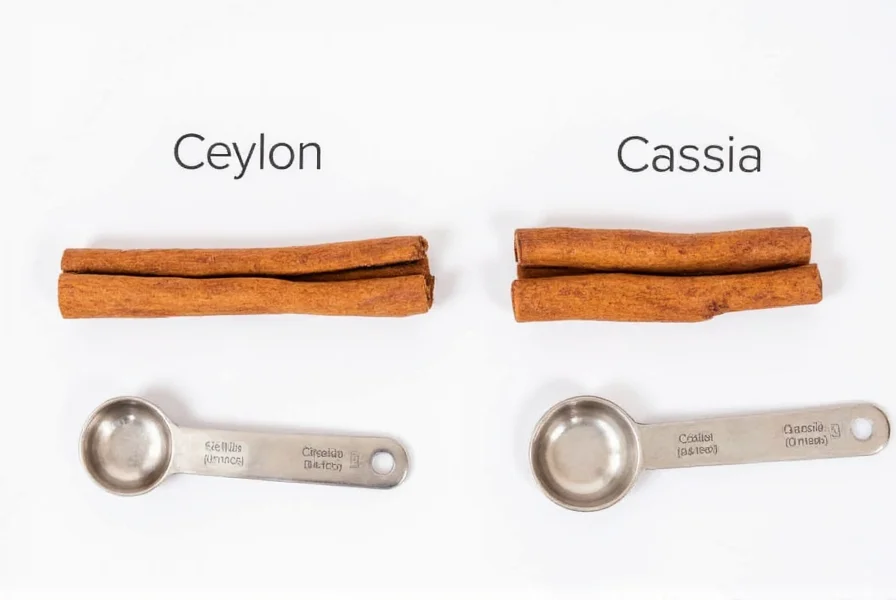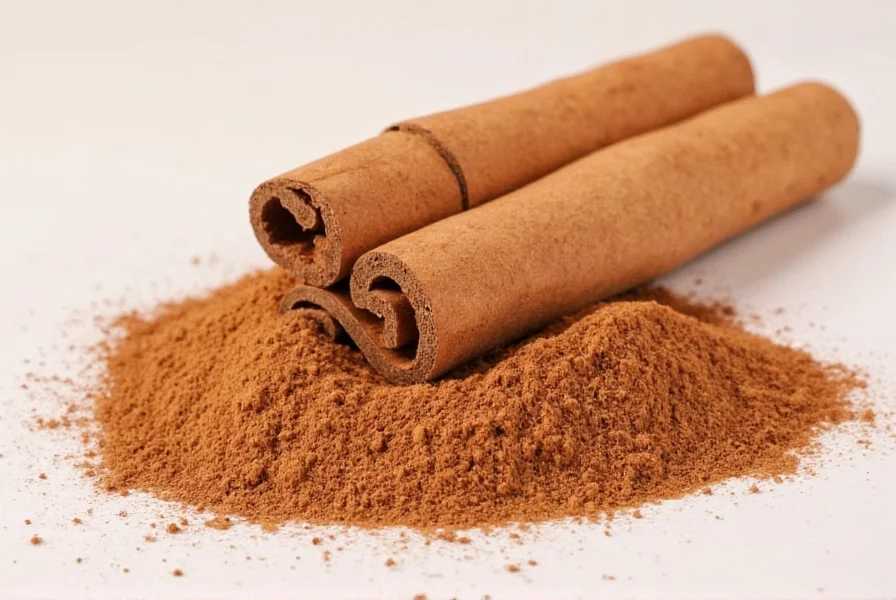Understanding proper cinnamon consumption is essential for safely incorporating this popular spice into your diet. While cinnamon offers potential health benefits, determining the right daily cinnamon recommendation requires considering several important factors including cinnamon type, individual health status, and consumption duration.
Understanding Cinnamon Types and Their Differences
Not all cinnamon is created equal when determining how much cinnamon is too much. The two primary varieties available commercially are:
| Cinnamon Type | Common Names | Coumarin Content | Availability |
|---|---|---|---|
| Ceylon Cinnamon | "True" cinnamon, Mexican cinnamon | Very low (0.017-0.114 mg\/g) | Less common, typically specialty stores |
| Cassia Cinnamon | Chinese cinnamon, regular cinnamon | High (2.1-5.6 mg\/g) | Most widely available in supermarkets |
The critical difference lies in coumarin content—a natural compound that can cause liver damage in high doses over time. Cassia cinnamon contains significantly higher levels of coumarin than Ceylon, making the cinnamon consumption limits much stricter for Cassia varieties.

Scientific Basis for Daily Cinnamon Recommendations
Research provides evidence-based guidance for safe daily cinnamon intake. The European Food Safety Authority (EFSA) established a tolerable daily intake (TDI) for coumarin at 0.1 mg per kilogram of body weight. For a 130-pound (59 kg) adult, this translates to approximately 5.9 mg of coumarin daily.
Given that Cassia cinnamon contains about 3,000-5,000 mg of coumarin per kilogram, just one teaspoon (2.6 grams) could contain 7.8-13 mg of coumarin—exceeding the recommended daily limit. This explains why the maximum cinnamon per day for Cassia is considerably lower than for Ceylon varieties.
Health Benefits Within Safe Consumption Limits
When consumed within appropriate cinnamon dosage for health benefits, this spice may offer several potential advantages:
- May help regulate blood sugar levels in people with type 2 diabetes
- Contains powerful antioxidants with anti-inflammatory properties
- Potential cardiovascular benefits through improved cholesterol profiles
- Natural antimicrobial properties
It's important to note that these potential benefits are generally associated with moderate, consistent consumption rather than high-dose supplementation. The cinnamon intake for blood sugar management studied in research typically falls within the 1-3 gram per day range, but always consult with a healthcare provider before using cinnamon therapeutically.
Risks of Excessive Cinnamon Consumption
Consuming cinnamon beyond the cinnamon safety guidelines can lead to several health concerns:
Coumarin Toxicity
High coumarin intake from Cassia cinnamon may cause:
- Liver damage or elevated liver enzymes
- Increased risk for people with pre-existing liver conditions
- Potential interactions with blood-thinning medications
Other Potential Side Effects
Excessive consumption may also cause:
- Oral irritation or mouth sores (particularly with direct contact)
- Low blood sugar when combined with diabetes medications
- Respiratory issues from inhaling cinnamon powder
Special Considerations for Different Populations
Certain groups require more conservative recommended cinnamon serving size:
- People with liver conditions: Should avoid Cassia cinnamon completely and limit Ceylon to minimal amounts
- Those on blood thinners: Coumarin may enhance medication effects, requiring medical supervision
- Pregnant and nursing women: Limited research available; moderate culinary use is generally considered safe
- Children: Maximum safe dose is proportionally lower based on body weight
Practical Tips for Safe Cinnamon Consumption
To incorporate cinnamon safely into your diet while following cinnamon consumption limits:
- Identify which type of cinnamon you're using—Ceylon allows for higher daily amounts
- Measure your servings rather than estimating
- Rotate cinnamon with other spices to avoid daily accumulation
- Consider using Ceylon cinnamon if consuming regularly or for therapeutic purposes
- Monitor how your body responds, especially if using for blood sugar management
Conclusion
Determining how much cinnamon daily is appropriate requires understanding the type of cinnamon you're using and your individual health circumstances. For regular culinary use, 1\/2 to 1 teaspoon of Ceylon cinnamon or up to 1\/2 teaspoon of Cassia cinnamon daily represents a safe daily cinnamon recommendation for most healthy adults. Those using cinnamon for potential health benefits should consult with healthcare providers to determine appropriate amounts based on their specific health needs and medication regimens. Remember that moderation is key—cinnamon offers benefits within safe consumption limits but poses risks when consumed excessively over time.
Frequently Asked Questions
Can I safely consume more than 1 teaspoon of cinnamon daily?
For Ceylon cinnamon, up to 1 teaspoon daily is generally safe for most adults. For Cassia cinnamon, exceeding 1\/2 teaspoon daily regularly may lead to coumarin accumulation. Long-term consumption above these amounts, especially of Cassia cinnamon, could potentially cause liver issues due to higher coumarin content.
How does cinnamon type affect safe daily consumption limits?
Ceylon cinnamon contains significantly less coumarin (0.017-0.114 mg\/g) compared to Cassia (2.1-5.6 mg\/g), making its safe daily cinnamon intake approximately twice as high. This is why you can safely consume 1-2 grams of Ceylon daily versus only about 1 gram of Cassia for most adults.
What are the signs of consuming too much cinnamon?
Excessive cinnamon consumption, particularly Cassia varieties, may cause liver discomfort, elevated liver enzymes, mouth sores, or low blood sugar symptoms. Long-term overconsumption could potentially lead to liver damage due to coumarin toxicity, though this is rare with culinary use within recommended limits.
How long can I safely take cinnamon daily for health benefits?
For therapeutic purposes, consult your healthcare provider. For general wellness, cycling cinnamon use (such as 5 days on, 2 days off) may be prudent when consuming near the upper limits of cinnamon dosage for health benefits. Continuous long-term use at higher doses requires medical supervision.
Does the safe amount of cinnamon change if I'm using it for blood sugar control?
Research on cinnamon intake for blood sugar typically uses 1-3 grams daily, but this should be done under medical supervision, especially if you're taking diabetes medications. The potential for additive blood sugar-lowering effects means you may need to adjust your daily cinnamon recommendation based on your individual response and medication regimen.











 浙公网安备
33010002000092号
浙公网安备
33010002000092号 浙B2-20120091-4
浙B2-20120091-4